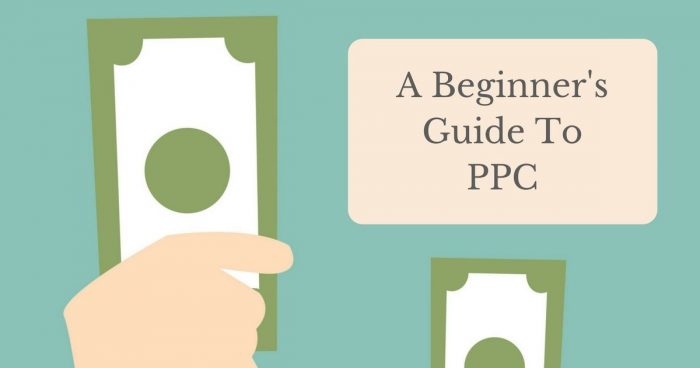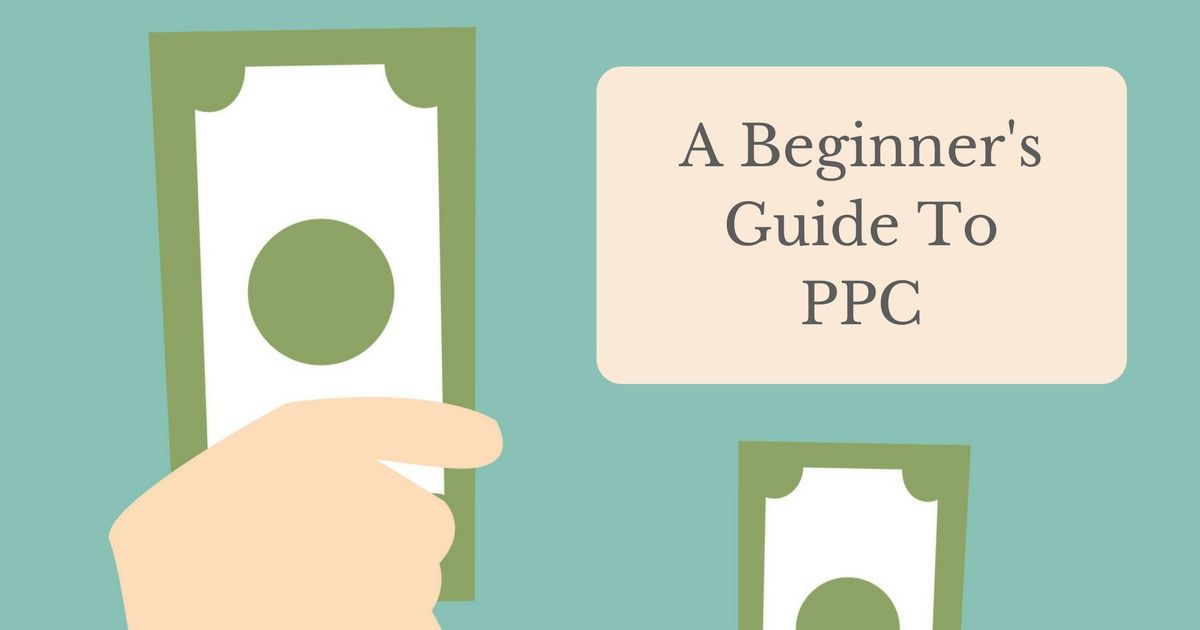If you’ve got a service or product that you’d like to get in front of more people, then Pay-per-click (PPC) advertising is something you must learn more about. The article covers a comprehensive beginners Guide to PPC advertising to follow in 2020. Read on to learn best PPC tips for beginners in coming year.
Table of Contents
Beginners Guide to PPC Strategy
In fact PPC is an effective method that can get you more traffic, and ultimately get you more sales conversions. How? Let’s take a deeper look by discussing just what PPC is. Our PPC tips for beginners will help you out in this.

What is Pay-per-click (PPC)?
PPC is a form of digital marketing where you create an advertisement, market it (usually through Google AdWords), and pay a certain amount of money every time someone clicks on your ad. Instead of getting more traffic through the more traditional organic methods, like content marketing, you essentially buy more traffic.
The most popular method of PPC is search engine advertising via Google AdWords. Google takes your ad and markets it as sponsored links when others are going about their day doing their internet searches.
Surely, you’ve typed in your search query in Google and noticed the first two or three search results have that little “AD” marked next to it. In fact, you may have become accustomed to scrolling down to find that very first unsponsored listing. Those sponsored ads are PPC marketing at work, and they’re VERY effective.
10 PPC Tips for Beginners – How to Prepare PPC Strategy?
Are you a beginner when it comes to PPC? No shame in that. PPC, and digital marketing in general, can feel a bit overwhelming at times. If you’re not an expert, you can start reading about it and feel that anxiety start to rise. You think, “How am I ever going to learn all of this?”
Good news is that you can progressively learn more and more, and you don’t have to be marketing genius to get started. So, today let’s focus on some easy PPC for those of you who are beginners.
1. Define Your Goals
Before you begin writing Google AdWords, spend some time getting clear on your objective. What is your goal? Do you “rush hour” traffic to your site? Do you want to build your email list? Sell a specific product or service? It’s important to know what you want so you can choose the most relevant keywords. Then, you’ll be well on your way to creating a highly persuasive advertisement.
Before you start building the effective PPC campaign strategy, it is very much important that you define your goal. You will find it quite amazing to know that there are various types of PPC targeting options which are offered by AdWords.
No sooner you describe your platform; you can select the ads that are best suitable for all the marketing need. For instance, if your only goal is to get brand recognition then display ads, and social media are made for you. Hence, you need to prioritize the task of describing your goal.
2. Choose a Search Engine
There are various search engines that you can choose from for your pay-per-click campaign, including Google, Yahoo, and Bing. Google AdWords is probably the most popular. All you have to do is sign up for Google AdWords and follow their detailed instructions to get you going.
There are also many video tutorials when it comes to creating Google AdWords PPC campaigns, so feel free to watch some.
3. Do your research
You’re going to want to do a considerable amount of time doing your keyword research. By keywords, we mean those words or phrases that are most relevant to your product or service, and what your potential customers are searching for.
If you’re not able to do this yourself, then hire an SEO specialist or PPC Marketing Agency to assist you. If you skimp on this step, then your campaign will not be as effective as it can be. In fact, it might even flop.
You’re going to have to put yourself in your customers shoes when choosing your keywords. What would your consumer type in the search engine? Be sure to narrow it down as much as you can.
4. Be persuasive
You only have a certain amount of text to convince a potential customer to click on your link. You’re going to have to choose every word wisely. This is why many businesses will hire a PPC campaign specialist to actually write the ad. You’ll be working with a heading and a very short amount of text.
You may want to check and see what your competitors are using and draw from them. Or perhaps you can survey your current customers when it comes to what is most important to them regarding your product or service.
5. Create Effective Landing Page
Do not point your PPC add to your homepage. You want to direct your potential customer to your specific landing page for the product or service that you’re promoting. Or, if you are seeking an email or subscription, take them directly to that page.
You want to let them land on a page that would allow them to make the purchase or give their email immediately, instead of sending them to the homepage where they might have to scroll around or get distracted.
If you want to cater an effective PPC management, then you will have to establish a solid link between the landing page optimization and the audience targeting. You should always try to make your site page relevant, and the more appropriate your website page will be the more helpful will that be for the visitors of the website.
If you are planning to go with the way the social media goes, then you will have to optimize your landing page based on the type of content and the language that performs well on that platform.
6. Analyze results
If you’re utilizing a PPC campaign then you want to analyze your results to see if the campaign is working or not. There’s no use in using Google AdWords if you’re not getting more traffic or making more sales conversions. There are plenty of analytical tools when it comes to tracking your results, with Google Analytics being quite popular.
You may have to tweak your keywords or adjust your budget along the way. Marketing is about being willing to change things up when something isn’t working. Or, you could hire a professional when you’ve done all you can do and are still not satisfied with the results.
7. Consider Multiple Campaigns
One PPC campaign is great but, oftentimes you’ll want to create additional campaigns that are based on various themes of your keywords. For example, if you’re selling toasters, for one campaign you may use keywords like “electric toaster” or “best toaster”. In another campaign, you may want to use a different theme with keywords like “kitchen gift” or “wedding gift”.
PPC campaigns may be a bit confusing at first, but after a while, you’ll catch on. It will take some time to learn the ins and outs, but each campaign you’ll get a bit more confident.
As you continue to analyze your campaign results (and don’t skimp on tracking your results), you’ll learn what works for your business and what doesn’t. And, if it doesn’t go as you wish, give yourself permission to hire a PPC professional to help your business be the best online business it can be.
8. Target Right Audience
When you start to focus on your audience with the help of AdWords then at the moment you must not only target the most similar keywords which is associated to your business, but at the same time, you must target based on content that exists. Mainly there are three categories for the search intent keywords; they are:
Transactional –
In this category the viewer wants to make transaction for purchase of any specific item.
Informational –
The people falling under this category will try to gain more knowledge regarding something.
Navigational –
The searchers navigate the page in order to go at some specific page.
Among the categories that are mentioned above the one that you need pay your attention should depend on the type of business that you have. For example, if you are dealing with a business that is an ecommerce one, then you need to invest in the transactional keywords in order to encourage the conversation.
But if you possess a business that is a service-based, then you will have to invest in the informational keyword, this will help them to enhance their strategy of content marketing.
9. Make your Ads
You will find it amazing to know that AdWords has assisted in not only automating the ad creation but also to optimize them. Therefore, if you want to get success, then you will have to provide AdWords with the range of ad variation.
If you take advantage of the AdWords feature then creating three to four variations of ad for hundreds of the ad group will not be a task.
10. Optimize your strategy
Now let us talk about the main focus of your strategy in developing PPC strategy. Your main concern should be in identifying the targeting features that will help you to initiate your campaign.
Generally, there are some important things to consider like for the display search and the social ads, but that should be dependent on the goal of your campaign only.
The Click through rate –
It helps you to identify how significant your ads are to your keyword or the audience that is being targeted for the social advertisement.
Conversion rate –
If you have low conversion rate then it indicates that the ads which are spent are better suited only for the keywords whose performance is high.
Cost per click –
The cost per click is also known as the CPC. This helps to determine the amount that you can pay in order to attract the attention of a member from your audience. You can determine this CPC by own.
Beginners Guide to PPC Strategy : Conclusion
With the world getting digitalized the things are changing rapidly. Moreover, there are certain things which got upgraded, and with time it becomes difficult to manage them by own.
For instance, previously developing an effective Pay per click strategy was very easy but it’s not that easy to develop. Nowadays, it has been noticed that the advertisers have various ways by which they can target their audience; this has made the distributing ad a challenge. Thank you for reading our beginners guide to PPC advertising. Tell us in comment box if you really like this.
- 10 Step Beginners Guide to PPC Strategy in 2020 - December 25, 2019

